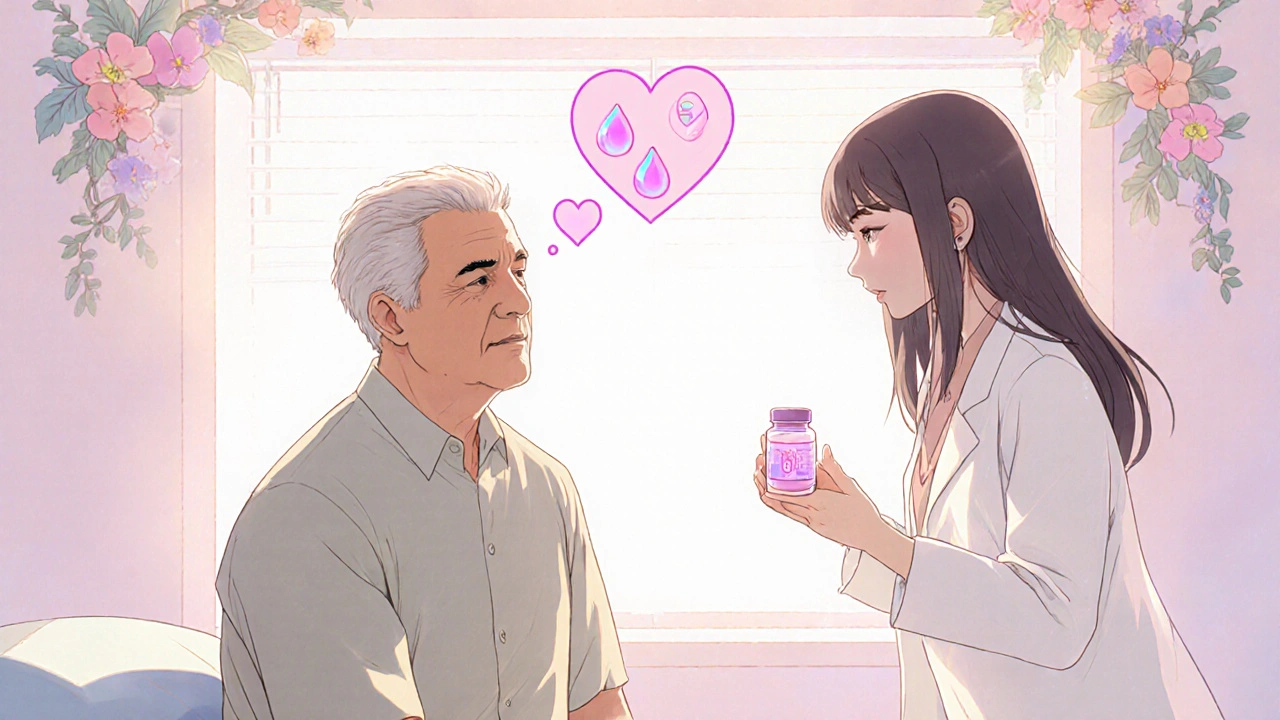Anticholinergics & Urinary Retention: Risks for Men with BPH
Learn why anticholinergic drugs can trigger urinary retention in men with an enlarged prostate, see the evidence, and get practical steps to prevent and manage this risk.
Read MoreWhen you take anticholinergics, a class of drugs that block acetylcholine to reduce muscle spasms, secretions, or nerve signals. Also known as cholinergic blockers, they’re used for overactive bladder, Parkinson’s, asthma, and even motion sickness. But for many, especially older adults, they come with a silent risk: urinary retention, the inability to fully empty the bladder.
How does this happen? Anticholinergics relax the bladder muscle just enough to stop sudden urges—but sometimes, they relax it too much. The bladder fills, but the signal to void doesn’t fire right. Men with enlarged prostates are especially vulnerable. Women with weak pelvic muscles or nerve damage from diabetes or surgery are at higher risk too. It’s not rare—studies show up to 30% of older adults on these drugs develop some level of urinary retention. And it doesn’t always feel like a problem at first. You might just notice you’re peeing less, needing to strain, or feeling full after going. Left unchecked, this can lead to UTIs, bladder damage, or even kidney stress.
Common anticholinergics, including oxybutynin, tolterodine, and even some older antidepressants and allergy meds. like diphenhydramine or scopolamine, are often taken without realizing how they affect the bladder. Even over-the-counter sleep aids or cold medicines can pack a hidden punch. If you’re on one of these and start having trouble urinating, it’s not "just aging"—it’s a drug reaction. The fix isn’t always stopping the med. Sometimes, switching to a different class, lowering the dose, or adding a timed voiding routine helps. But you need to talk to your doctor before making any changes.
What you’ll find in the posts below are real-world stories and practical guides on how these drugs interact with the body—whether it’s how anticholinergics affect older patients, how to spot early signs of bladder trouble, or which alternatives might work better without the side effects. No fluff. Just clear info to help you or someone you care about avoid unnecessary complications.

Learn why anticholinergic drugs can trigger urinary retention in men with an enlarged prostate, see the evidence, and get practical steps to prevent and manage this risk.
Read More